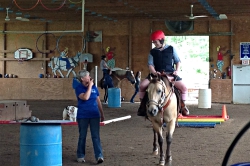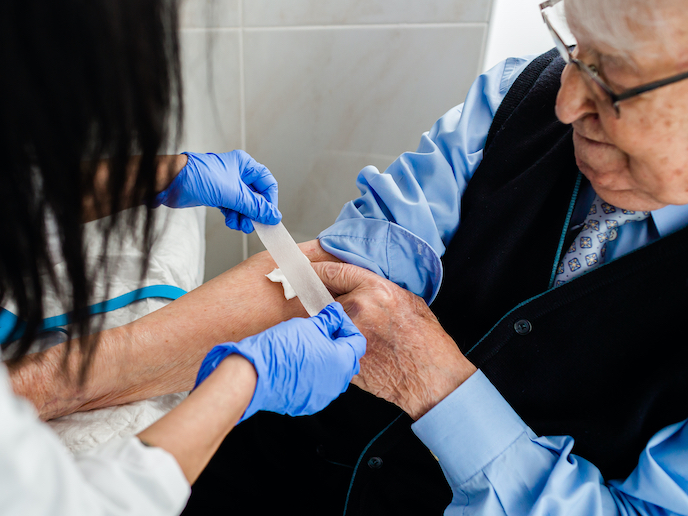Hippotherapy for MS fatigue: not horseplay at all
Diagnosed in over 2.3 million people, MS is the most common debilitating disease in young adults worldwide. There are over 120 000 diagnosed cases in Germany alone. Great strides have been made in developing medications that slow disease progression. However, its daily symptoms remain largely untreated. Amy Hubbard, neuroscientist and MS patient In the summer of 2011, while teaching and researching the neurobiology of language and movement at Carnegie Mellon University, Dr Amy Hubbard(opens in new window) developed double vision and periodic blindness, became wheelchair-bound and was often unable to speak. Six months later, diagnosed with MS, Dr Hubbard was forced to move back to her parents’ farm for help as even shuffling over short distances became impossible without support. Seven years later, funded by a Horizon 2020 Marie Skłodowska-Curie Individual Fellowship, Dr Hubbard is the principal investigator of the project MS Fatigue_Therapy in the lab of Prof. Hedda Lausberg at the German Sport University Cologne (DSHS). Here, Hubbard researches the impact of therapeutic horseback riding on daily symptoms of MS. Tests for impact of hippotherapy Before beginning this line of research, Dr Hubbard herself experienced how therapeutic horseback riding can positively impact the daily debilitating symptoms of MS. At the Eos Therapeutic Riding Center in Pennsylvania, United States, Hubbard worked with her horse Tiny Mite, certified instructor Debbie Reifendifer and Eos founder Debbie Smith. In little over a year of weekly riding sessions, Hubbard saw significant improvements in her walking, balance, motor control, vision, cognition and fatigue. In cooperation with the Gold-Kraemer-Stiftung Pferdesport und Reittherapie Zentrum and the German Multiple Sclerosis Society of Cologne, Dr Hubbard and DSHS collaborators Lausberg and Mr Christian Büning used the movement behaviour analysis and scales test (BAST, created by Lausberg) and standardised questionnaires to measure changes in a group of 15 women with MS who participated in hippotherapy, one methodology of therapeutic horseback riding. “We used a multi-method approach integrating quantitative robust movement behaviour data, scores on standardised questionnaires, and responses to open-ended questions both before and after 16 weekly hippotherapy sessions as well as 4 months after session completion,” outlines Dr Hubbard. After each movement test session, subjects completed a series of questionnaires, including the bladder and bowel control scales (BLCS and BWCS, respectively), the fatigue severity scale (FSS), and a questionnaire compiled by Dr Hubbard wherein subjects could describe their experiences with hippotherapy. Responses to effects of horseback riding for relief of MS symptoms Analyses of the BLCS, BWCS and FSS yield trends toward improvements – yet, no significant differences – between pre-hippotherapy and post-hippotherapy as well as between pre-hippotherapy and long-term. However, the consistent record of improvement described in subjects’ written responses to open-ended questions is altogether striking. One post-hippotherapy answer noted: “no more bladder problems; chronic constipation disappeared, enjoy having sex again, balance improvements.” To the question asking what they liked most about hippotherapy, one responded: “sitting on the horse and realising the changes in my body.” Subjects’ movement data reflect these reports, with changes observed in areas such as balancing on the front of their feet. Hurdles and after the finishing line for MS Fatigue_Therapy Dr Hubbard sums up her hopes for the future. “I am so happy to be able to work again, despite having MS,” she says. “For now, the next step is to establish an objective test of MS fatigue. This is necessary for showing which therapies can improve quality of life for the majority of patients with MS.”







